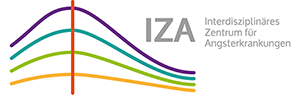Spider phobia
Fear of spiders, also known as arachnophobia, is one of the most common specific phobias. The irrational fear of the eight-legged animals, which can be accompanied by sweating, heart palpitations, trembling, or even difficulty breathing, cannot be suppressed despite the knowledge that there is actually no danger. The word spider alone may sometimes trigger stress reactions. It is mainly women who are affected by a spider phobia. Arachnophobia is primarily treated with exposure therapy.
Exposure therapy
Exposure therapy is a specific type of cognitive behavioral therapy (CBT). The therapist confronts the patient with the object or situation that triggers anxiety. Nowadays, more and more often therapists use the possibilities of virtual reality. As the intensity of the stimulus increases, the fear decreases, and patients become desensitized. Exposure therapy is currently proven to be the most effective treatment method for specific anxiety disorders that are triggered by clearly defined situations or objects.
Therapy study "Spider VR”
In the therapy study "Spider VR", funded by the Collaborative Research Center “Fear, Anxiety, Anxiety Disorders” (CRC Transregio 58), patients with arachnophobia receive exposure therapy in virtual reality (VR). This permits the confrontation with the fear-inducing objects in a controlled and standardized situation. The aim of the study is to identify meaningful character traits, circumstances, or characteristics of a person - the predictors - for a successful exposure therapy from the multitude of possible variables. In future, patients who, based on the findings, will probably not respond optimally to the standard therapy alone could thus receive supplementary therapy offers from the beginning of their therapy.
Fear of heights
At great heights, such as the platform of a mountain top or television tower, anyone can feel a little dizzy. However, some people already experience dizziness, sweating, and palpitations as an expression of an anxiety disorder while standing on a bridge, balcony, or even on the lower steps of a stepladder. The fear of heights, or acrophobia, is another specific anxiety disorder that can often have a massive negative impact on everyday life. However, it can usually be successfully treated with cognitive behavioral therapy (CBT) and exposure therapy.
Therapy study "rTMS”
In the study "Non-invasive brain stimulation in the psychotherapy of anxiety disorders", which is funded by the DFG (German Research Foundation), we are investigating whether non-invasive repetitive transcranial magnetic stimulation (rTMS) is useful in addition to exposure therapy in cases of fear of heights. Based on our own preliminary findings as well as on the publications of other research groups, we expect a stronger and faster response to exposure therapy by using non-invasive brain stimulation. If the results are positive, this approach will be reviewed for the treatment of other anxiety disorders in order to have a complementary tool available in the long term for the optimization of anxiety therapy in severe cases.
Contact
Prof. Dr. phil.
Martin Herrmann
Leitender Psychologe - Klinik und Poliklinik für Psychiatrie, Psychosomatik und Psychotherapie (PPP)
+49 931 201-76650
Kontakt, Sprechzeiten
Telefon
Anmeldung zur ambulanten Behandlung in der Klinik und Poliklinik für Psychiatrie für Psychiatrie, Psychosomatik und Psychotherapie (PPP)
+49 931 201-77800
Anmeldung in der Hochschulambulanz
+ 49 931 3182839
Anmeldung zur ambulanten Behandlung im Klinik und Poliklinik für Kinder- und Jugendpsychiatrie, Psychosomatik und Psychotherapie (KJPPP)
+49 931 201-79600
E-Mail und Fax
Sekretariat PPP
ps_sekr@ukw.de
+49 931 201-77020
Sekretariat Hochschulambulanz
angstambulanz@psychologie.uni-wuerzburg.de
+4931 31-828390
Sekretariat KJPPP
kj_ambulanz@ukw.de
+49 931 201-78620
Anschrift
Interdisziplinäres Zentrum für Angsterkrankungen | Universitätsklinikum Würzburg | Magarete-Höppel-Platz 1 | 97078 Würzburg | Deutschland


